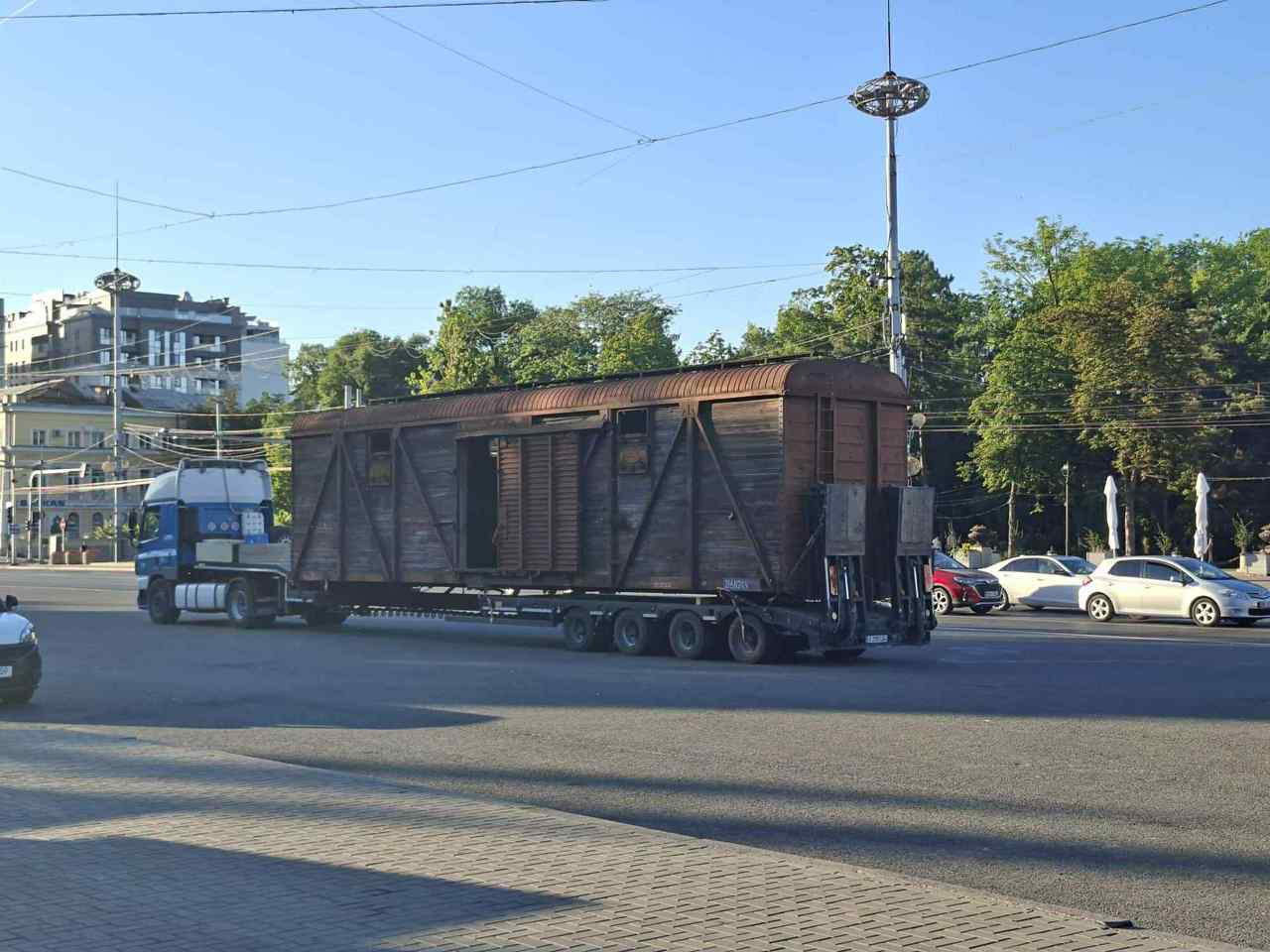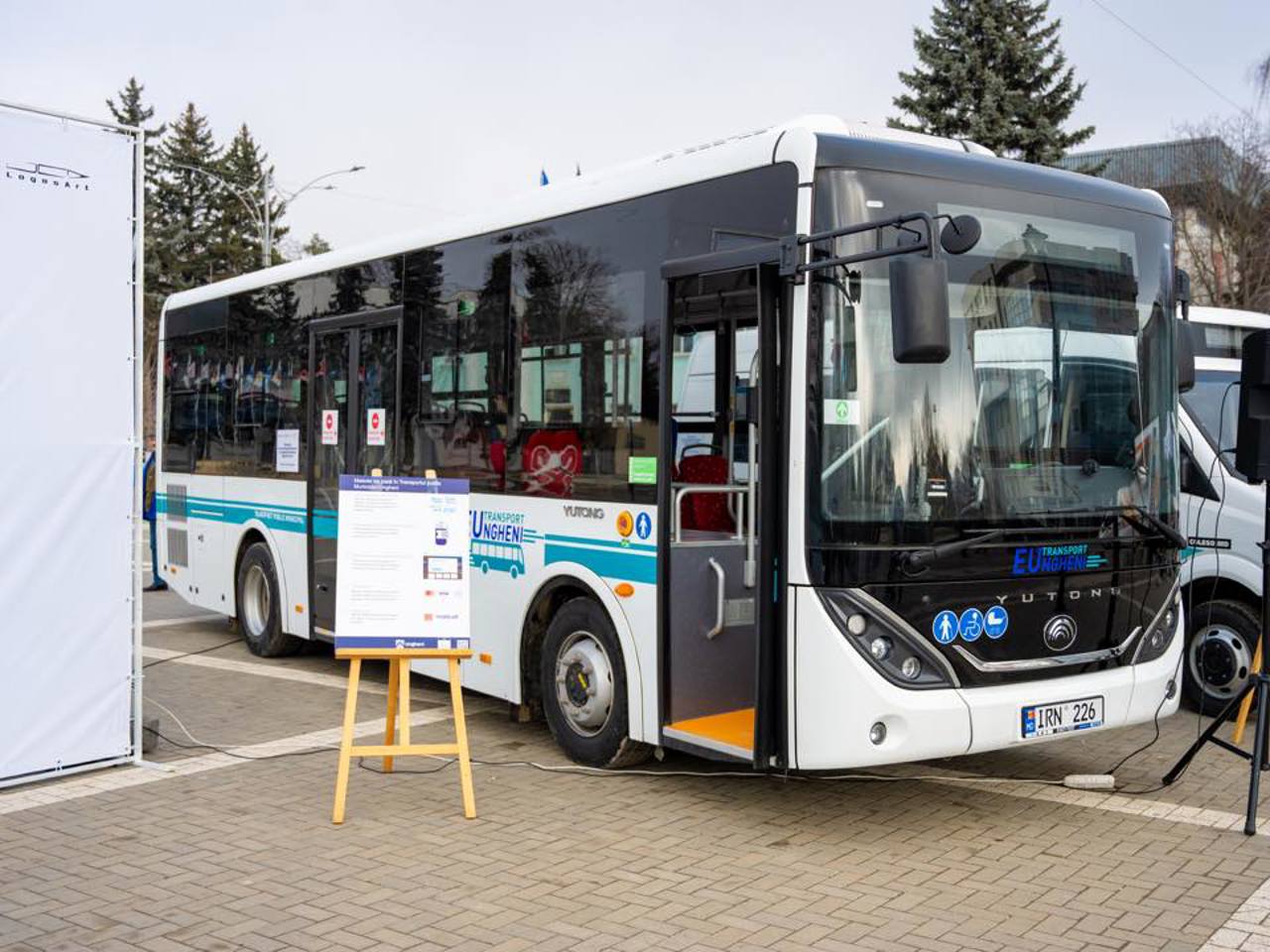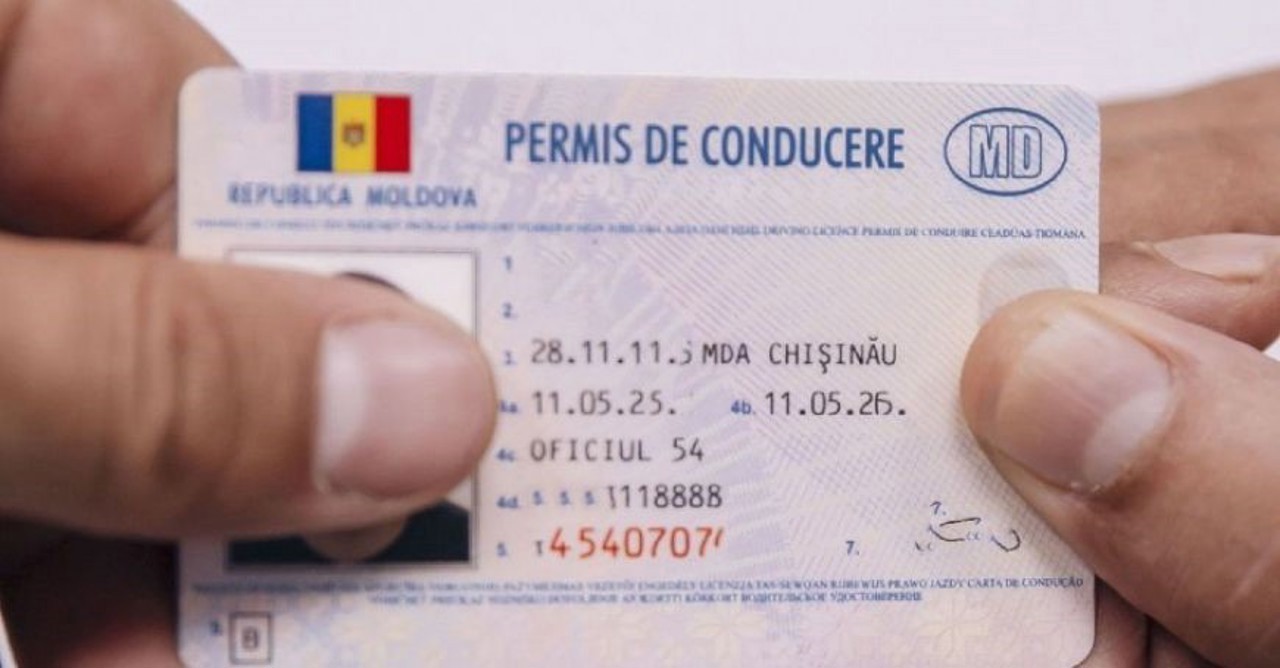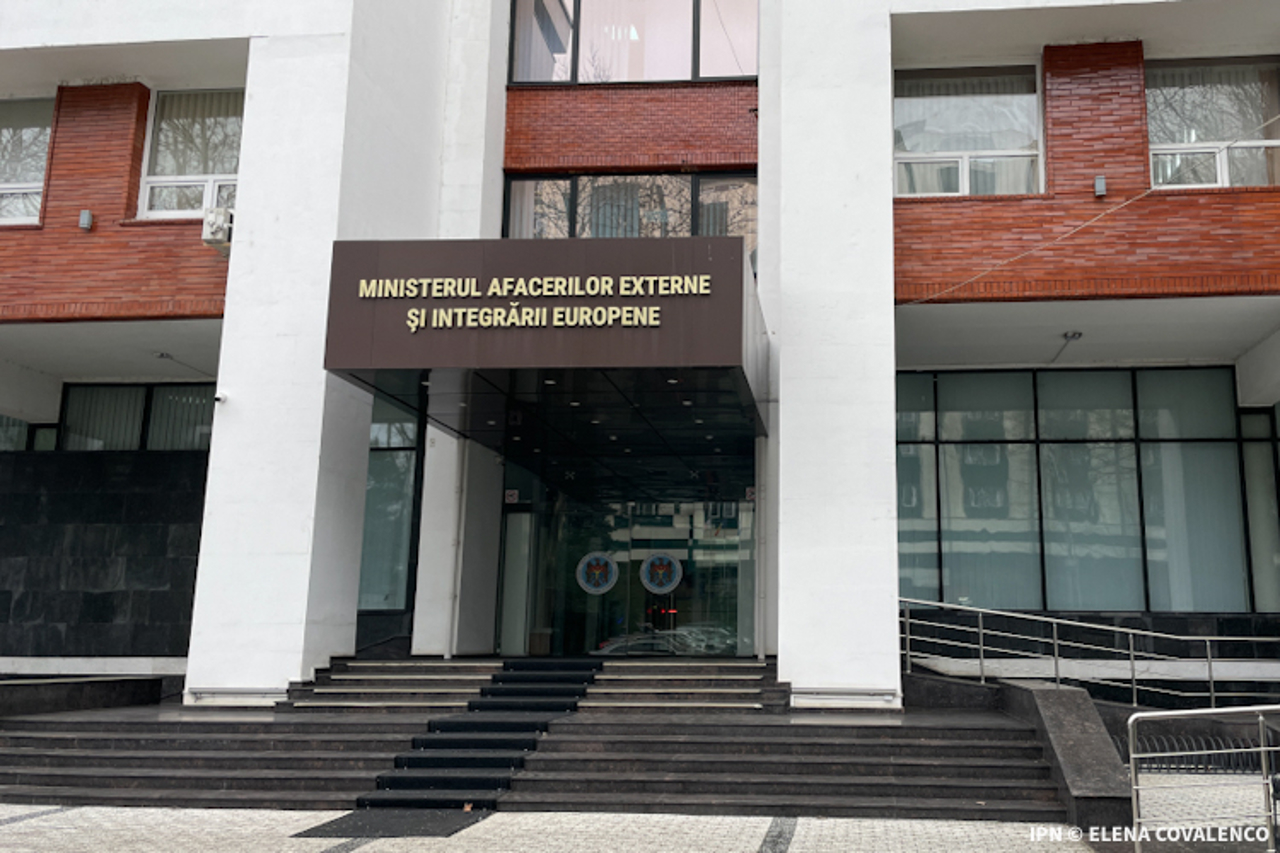Deportation cars on display in Chișinău
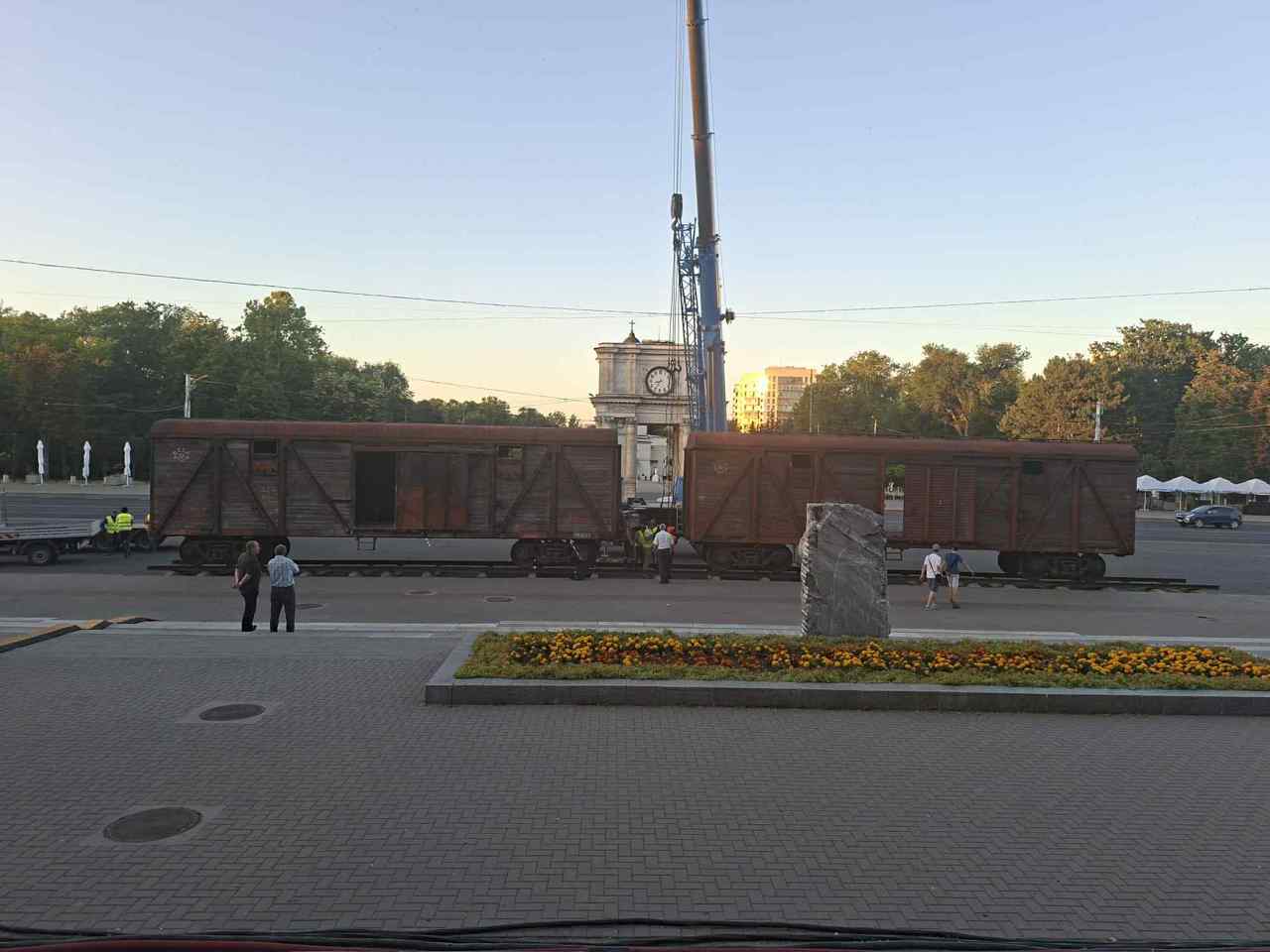
The two railway cars, a stark reminder of the conditions under which tens of thousands of Moldovans were forcibly torn from their homes and deported to Siberia or Kazakhstan by the Soviet regime, have already been installed in the Great National Assembly Square.
One of the cars will showcase documents, photographs, books, and various objects illustrating the experience of all those repressed by the Soviet regime. The second car will feature an exhibition dedicated to the 1946-1947 famine and additional multimedia content. Visitors will also have the opportunity to experience a virtual exhibition through VR technology.
The exhibition, titled "Soviet Terror in the Moldavian SSR: Scale, Victims, and Perpetrators," organized by the Government for the third consecutive year in the heart of the capital, will be inaugurated on Saturday, July 5th, at 8:00 PM. The event will be attended by Moldova's leadership, historians, cultural figures, and more.
Starting Sunday, July 6th, the exhibition will be open daily from 9:00 AM to 9:00 PM, until July 27th. "The exhibition is dedicated to the victims of Stalinism and communism in general. This effort, directly initiated, coordinated, and supported by the Government for three years running, is becoming a tradition and a sign of normalcy: we are free to express our thoughts and commemorate all our fellow citizens who suffered unjustly, in peacetime, at the hands of a dictatorial, totalitarian regime. The archives have provided a new set of posters, designed differently, with new materials, photos, and interpretations, covering the entire Soviet period, from its beginnings to its end. That's why it's generically called 'STATE TERROR IN SOVIET MOLDOVA: Victims, Perpetrators, Scale,' with explanatory text in both Romanian and English," stated Igor Cașu, Director of the National Archives Agency.
The exhibition program will also include several special events. On July 13th, thematic films from the National Archives' collection about Soviet repressions will be screened, and on July 20th, the feature film "Siberia from the Bones," directed by Leontina Vatamanu, will be screened. On July 26th, actors from the "Vasile Alecsandri" Theater in Bălți will perform "Homework," a drama inspired by the Stalinist deportations.
It's important to note that the night of July 5th-6th, 1949, saw the largest mass deportation operation on the current territory of the Republic of Moldova. As a result, 36,000 people—over 11,000 families—suffered. The homes, lands, and belongings of the deported peasants were transferred to collective farms (kolkhozes), and a portion was stolen and sold. To carry out the operation, 3,071 trucks and 1,736 railway cars, typically used for transporting animals, were mobilized.
Translation by Iurie Tataru
